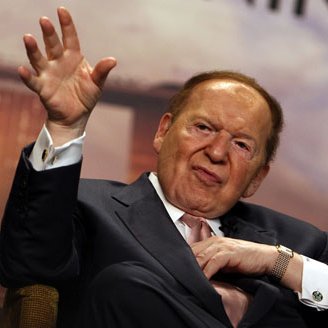US Congressman Jason Chaffetz Introducing Bill Banning Online Poker

 US Representative Jason Chaffetz, R-Utah (pictured), is gearing up to introduce a bill that seeks to reinstate a Federal ban on internet gambling, according to the Congressman’s spokeswoman. Chaffetz’s bill is said to be very similar to one that GOP Senator Lindsey Graham will likely unveil before the end of the week and could roll back the huge gains made by the US online gambling industry in the past few years.
US Representative Jason Chaffetz, R-Utah (pictured), is gearing up to introduce a bill that seeks to reinstate a Federal ban on internet gambling, according to the Congressman’s spokeswoman. Chaffetz’s bill is said to be very similar to one that GOP Senator Lindsey Graham will likely unveil before the end of the week and could roll back the huge gains made by the US online gambling industry in the past few years.
According to a draft of the bill circulating on Capitol Hill, the legislation aims to “restore longstanding United States policy that the Wire Act prohibits all forms of internet gambling.” The Wire Act was passed in 1961 and was originally meant to crack down on Mafia bookmakers who took bets over the phone.
In more recent years, the Wire Act has been used to block not just sports betting, but also online poker. In 2011, the Department of Justice issued a reinterpretation of the law that paved the way for individual states to legalize the industry should they choose to do so.
The Chaffetz-Graham legislation would block all forms of online gambling, but contains one very interesting carve-out for horseracing. “The term ‘bet or wager’ does not include any activities set forth in section 5362(1)(E) of title 31, or any activities permitted under the Interstate Horseracing Act of 1978,” the draft bill states.
As Politico points out, that glaring exception is likely meant to appease Minority Leader Mitch McConnell, whose home state of Kentucky is one of the country’s biggest horseracing hubs.
 The bill falls perfectly in line with Sheldon Adelson‘s (pictured) vision of a country free from the ills caused by internet gambling. In fact, according to the DailyCaller, properties of the Chaffetz bill seem to indicate that it was written by Darryl Nirenberg, a reported lobbyist for Adelson’s Las Vegas Sands Corporation.
The bill falls perfectly in line with Sheldon Adelson‘s (pictured) vision of a country free from the ills caused by internet gambling. In fact, according to the DailyCaller, properties of the Chaffetz bill seem to indicate that it was written by Darryl Nirenberg, a reported lobbyist for Adelson’s Las Vegas Sands Corporation.
Adelson has created a firestorm by taking a strong stance against the industry, claiming that it would exploit and corrupt America’s youth and elderly. Keeping with his promise to “spend whatever it takes” to ban online gambling, the casino magnate has created the Coalition to Stop Internet Gambling and put together a team of public relations experts and lobbyists to achieve that goal.
Unsurprisingly, the group was quick to praise the coming legislation. “We support and applaud all efforts to restore the longstanding interpretation that the Wire Act prohibits internet gambling. It’s common sense that putting a virtual casino in the pocket of every American with a smartphone is bad public policy,” it said on Wednesday.
Famous for lavishing cash on favored politicians, Adelson has recently turned on the faucet for Graham, donating $15,600 to the Senator’s campaign in 2013. The timing of the contribution is telling, as the billionaire has never been known to be a supporter of Graham’s and the Senator doesn’t have a track record of opposing online gambling.
 Opponents of the bill, like the MGM-backed Coalition for Consumer and Online Protection, say that legislation hoping to block online gaming will do more harm than good. “Banning all online gaming nationwide, as this bill effectively does, would put American consumers at serious risk,” said group advocate Mary Bono. “It is impossible to stand in the way of the internet; instead, we should embrace and shape these new technologies in a way that is safe for consumers.”
Opponents of the bill, like the MGM-backed Coalition for Consumer and Online Protection, say that legislation hoping to block online gaming will do more harm than good. “Banning all online gaming nationwide, as this bill effectively does, would put American consumers at serious risk,” said group advocate Mary Bono. “It is impossible to stand in the way of the internet; instead, we should embrace and shape these new technologies in a way that is safe for consumers.”
Although the anti-online gaming position has gained the support of the two lawmakers, the Chaffetz-Graham legislation could be a tough sell in Congress. Delaware, Nevada, and New Jersey have already legalized the industry, which, apart from a few hiccups, is running smoothly and generating much-needed tax revenues.
Stay tuned to PocketFives for the latest poker legislation news.
Want the latest poker headlines and interviews? Follow PocketFives on Twitterand Like PocketFives on Facebook. You can also subscribe to our RSS feed.




